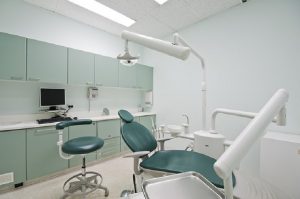As a dental center owner, one of the most vital contracts you may need to sign with another party is a lease agreement. As rent is one of the biggest yearly expenses, make an informed decision to get the most lucrative deal.
Are you planning to lease a dental office space? You need to understand certain terms before leasing this medical office space. Here are the terms that you should know:
You Should Be Able to Negotiate
Make sure you don’t commit the common mistake when signing a lease agreement, i.e., not negotiating. Don’t assume that the initial lease presented by your landlord is non-negotiable.
Most of the leases are adjustable and adaptable. Avoid the acceptance of the first rental terms offered by the landlord. Try to negotiate price or other property concessions.
Sometimes, real estate brokers try to convince dentists that the negotiation form is standard. Remember, there is nothing like a traditional lease. Don’t get convinced quickly and negotiate a more profitable deal.
If the landlord is firm with their decision, get into an agreement that benefits both parties. When they refuse to negotiate, just walk away. You are not bound to the terms and conditions of the current lease. So, accept the least as it is and negotiate terms that comply with your practice’s specific requirements.
Expenses Vary According to the Lease Type
You should know the different types of leases as that helps you in comparing various options and choosing the most beneficial one among them. Triple net lease and gross lease are two critical types of leases.
A triple net lease (also known as NNN lease) is an agreement on a property where a tenant pays for building insurance, taxes, and maintenance. You will pay a monthly base rent amount for the medical office space where your dental practice operates.
Negotiation is crucial for triple net leases. Thus, you can hire a professional who can negotiate exclusions for annual cost capital, shared expenses, and other negotiation aspects.
Gross lease (also known as a full-service lease) has a flat rent that a tenant pays, and the landlord covers almost every related expense with space. This type of lease tends to have a high base rent as the tenant pays a flat rental price.
Gross lease is a better choice if you want a consistent overhead rent for simple budgeting. When you have an attorney, they ensure your landlord is not putting any extra cost on you.
Lease Length Largely Affects Your Success
Price is one of the most vital factors to consider when determining the lease term length, which significantly affects the overall success. When you sign a short-term lease and need to shift locations, it hurts your practice’s goodwill.
Moreover, many dental industry experts require the lease to have the shortest duration. It would help if you had a certain formulation of a decade to approve a start-up loan or practice acquisition. You can adjust your loans to renew the term, giving you more flexibility to renegotiate lease terms or stay/relocate depending on the option that suits your practice.
Bottom Line
Before leasing a dental office space, you need to understand these discussed terms. When it comes to leasing such medical office spaces, you can take help from a professional in dental practice transition who can help in – planning, sales, calculations, buyer representation, and financing.








